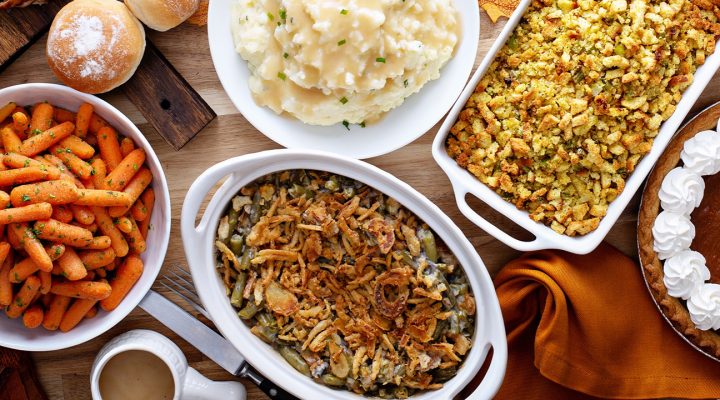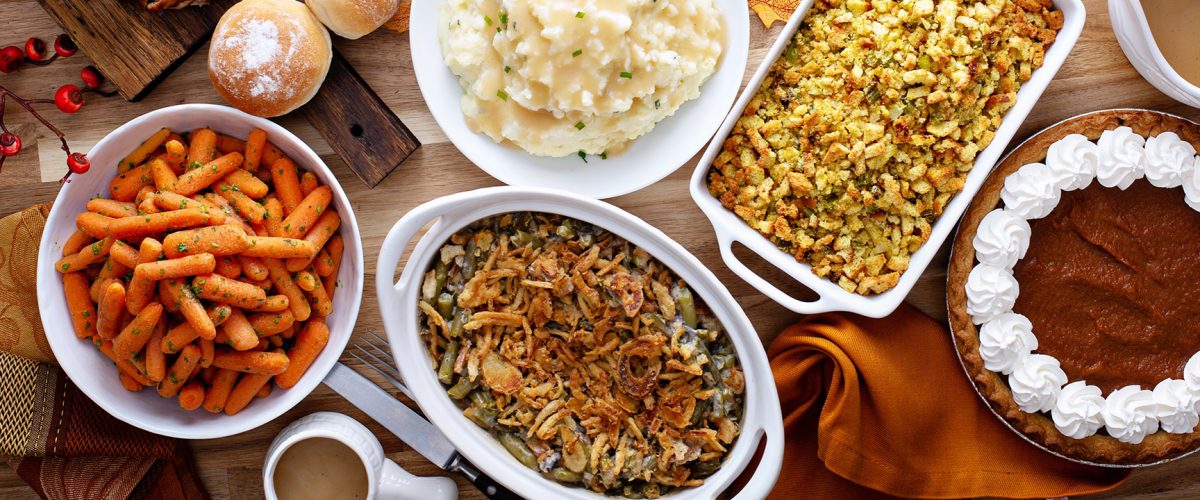“When I tried it with butter, everything changed!” — How Food Brings Us Together
Recently on Tik Tok, this interview of a kid named Tariq talking about how much he loves corn has gone viral. He’s even gotten his own remixed song about corn.
 Tariq’s pure, overwhelming joy about his favorite vegetable has taken social media by storm. For him, trying corn with butter for the first time was a life-changing experience, and he needed to tell the world.
Tariq’s pure, overwhelming joy about his favorite vegetable has taken social media by storm. For him, trying corn with butter for the first time was a life-changing experience, and he needed to tell the world.
But why did this go viral? There are quite a few reasons: He’s adorable, he’s funny, and corn is great. But there’s something special about the way food brings us together that this interview homes in on. The joy Tariq feels about corn is a joy we all have felt when eating something. Everyone has a special memory about a home-cooked meal, or their comfort take-out restaurant, that makes them want to sing.
“Food and Faith” is a growing topic among collegiate-level religion departments and divinity schools. Courses in this field study how our unique eating habits contribute not only to our physical well-being but to our spiritual lives and religious communities. They emphasize that food connects us to other people, cultures, plants and animals in diverse ways.
Eating is an integral part of what makes us human, and each faith tradition has a way of utilizing food to honor the body, the earth, the community and the divine. This topic also addresses the ethics of our food consumption. We do not often talk about the lives our chicken nuggets lived on the farm, or their journey through the processing plant. When we grab a snack cake at the store, we don’t consider the hormones or GMOs that might be hiding inside. To challenge us further, most people have not considered how things like colonialism, imperialism and racism have contributed to our eating practices.
For example, a National Geographic article discusses how slavery influenced American food history. Jessica Harris, a culinary historian, notes that the use of okra to thicken gumbo is a technique brought here by enslaved persons. A similar technique was used to make soupikandia, a Sengalese stew (sometimes known today in English as “okra soup”) that enslaved cooks prepared on plantations.
The iconic vegetable has many uses in the modern American South — fried okra, pickled okra, steamed okra — and gumbo often is associated with New Orleans. However, understanding how these dishes came to America helps us appreciate and honor the history (and people) that brought these foods to our plates.
Food also brings us together, partially because knowing about our food helps us respect and interact with the cultures from which they originated, but also because eating often is a communal experience.
“Knowing about our foods helps us respect and interact with the cultures from which they originated, but also because eating often is a communal experience.”
Think about it: When you are born, your parents or guardians must teach you how to eat. Sure, we have some instincts that tell us when we’re hungry, but it takes children a long time to learn how to drink milk, then move on to mushy or blended foods and finally graduate to solid foods. And after that, we don’t eat alone simply because we have learned how to do it without assistance. We eat with our families, with our classes at school, with our friends at restaurants, with our significant others on dates. Even if we have a busy day and decide to pick up something from a fast-food place, we are eating something that has been prepared, cooked and served by a lot of people. And consider persons with disabilities who cannot eat on their own, such as an elderly person who no longer can pick up a spoon. We either sit with them and assist them every time they eat, or a team of scientists works hard to invent adaptive utensils or medications that will make eating possible for them.
There is something about food that evokes deep, spiritual relationships in us.
When my friends are having a rough day, I always suggest a trip to go get ice cream. Why? Because eating brings us closer together. I have faith that nourishing our bodies, and ensuring that others are nourishing their bodies, is an essential part of our spiritual development. Eating is not a replacement for therapy, but the tastes and smells of foods that bring us joy sure can ease our souls.

Mallory Challis
Mallory Challis serves as a Clemons Fellow with BNG. She is a senior at Wingate University.
Related articles:
How travel and food break through barriers that divide us | Opinion by Phawnda Moore
A rural church reimagines the Lord’s Supper as a farm stand | Opinion by Justin Cox


